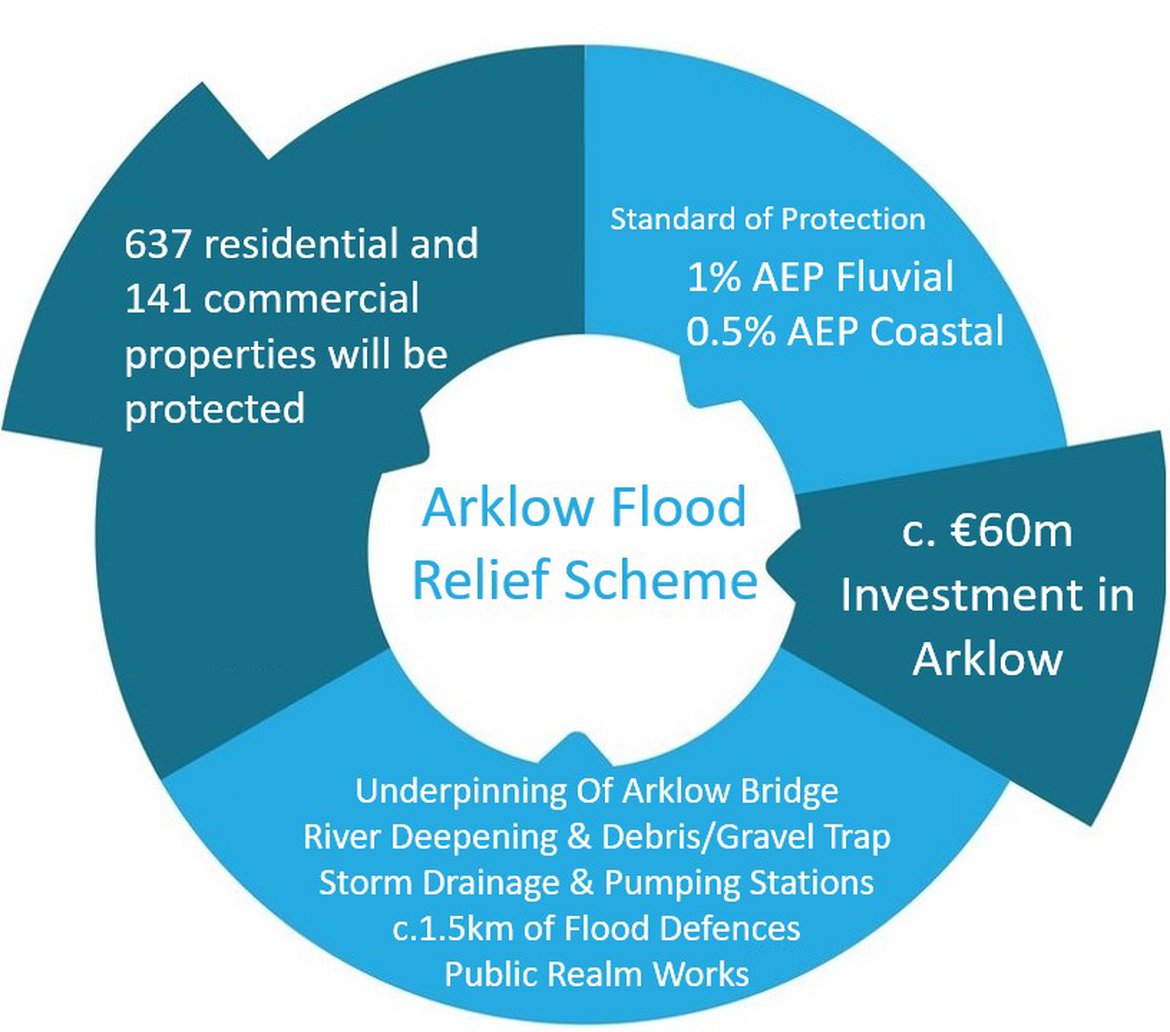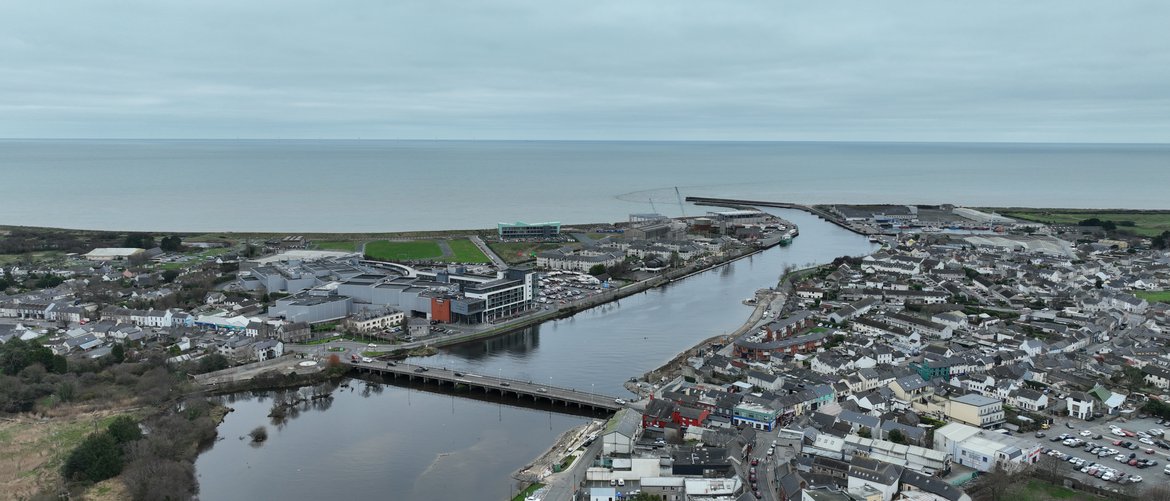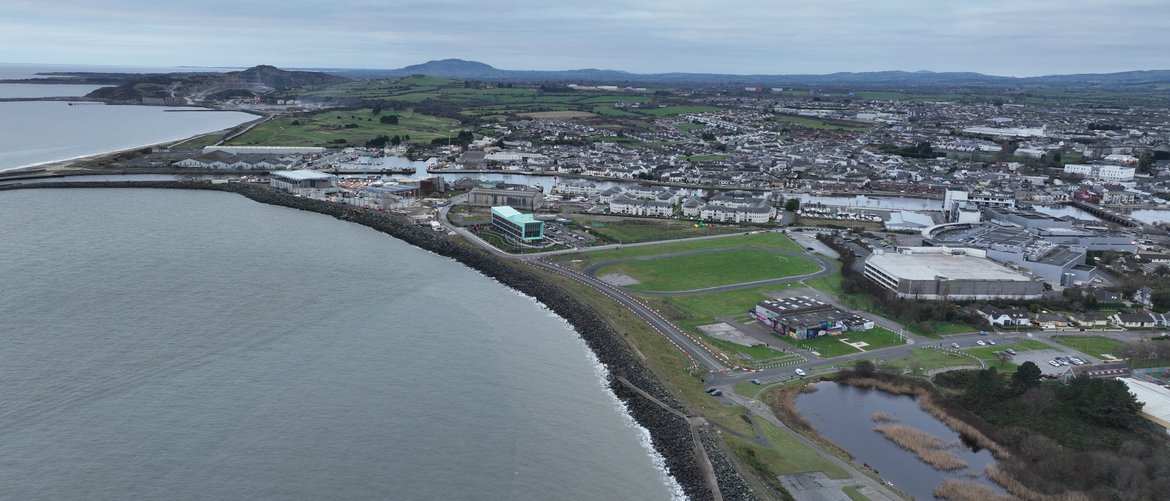Introduction
Arklow is a busy port town in County Wicklow located on the east coast of Ireland, overlooked by Ballymoyle Hill. The town is situated at the mouth of the River Avoca, the longest river in Wicklow, and is divided by the Irish Sea. The north side of Arklow (Ferrybank) is linked to the south of the town by ‘The Nineteen Arches’ bridge built between 1754 and 1756.
Arklow was historically a major seafaring town with shipping, ship building and fishing industries. The town has built heritage due to its historical development. The Ormonde Castle remains mark the Medieval core of Arklow town, the castle origins can be traced back to Viking times. The Abbey of the Holy Cross was a Dominican Friary established in Arklow in 1264. The Abbey was supressed and abandoned in 1539 resulting in ruins with no trace of the original structure to date. The adjacent Abbey cemetery and limestone cross are the only surviving remains.
Arklow town experiences recurring floods that have caused widespread damage to public and private properties. Significant flooding of Arklow occured in 1986, with the last major flood in 2015. The flood risk in Arklow may also increase in the future, due to a range of factors, including climate change, sediment transport, erosion, development within the catchment of Avoca River and its tributaries, and changes in land use and drainage.
As part of the Government’s National Development Plan 2018-2027, €1 billion has been committed to the development of flood relief measures across Ireland. As part of this commitment, a steering group was established between the Office of Public Works (OPW) and Wicklow County Council to progress a flood relief scheme to alleviate the risk of flooding for Arklow. In December 2023, Ayesa were appointed Engineering and Environmental Consultants to develop a scheme that is technically, socially, environmentally, and economically acceptable, to alleviate the risk of flooding to the community of Arklow. The project commenced in January 2024.
The initial task for the project team is to progress the required detailed design, drawings and documents necessary to progress the scheme to the point where the main construction works can be procured.



